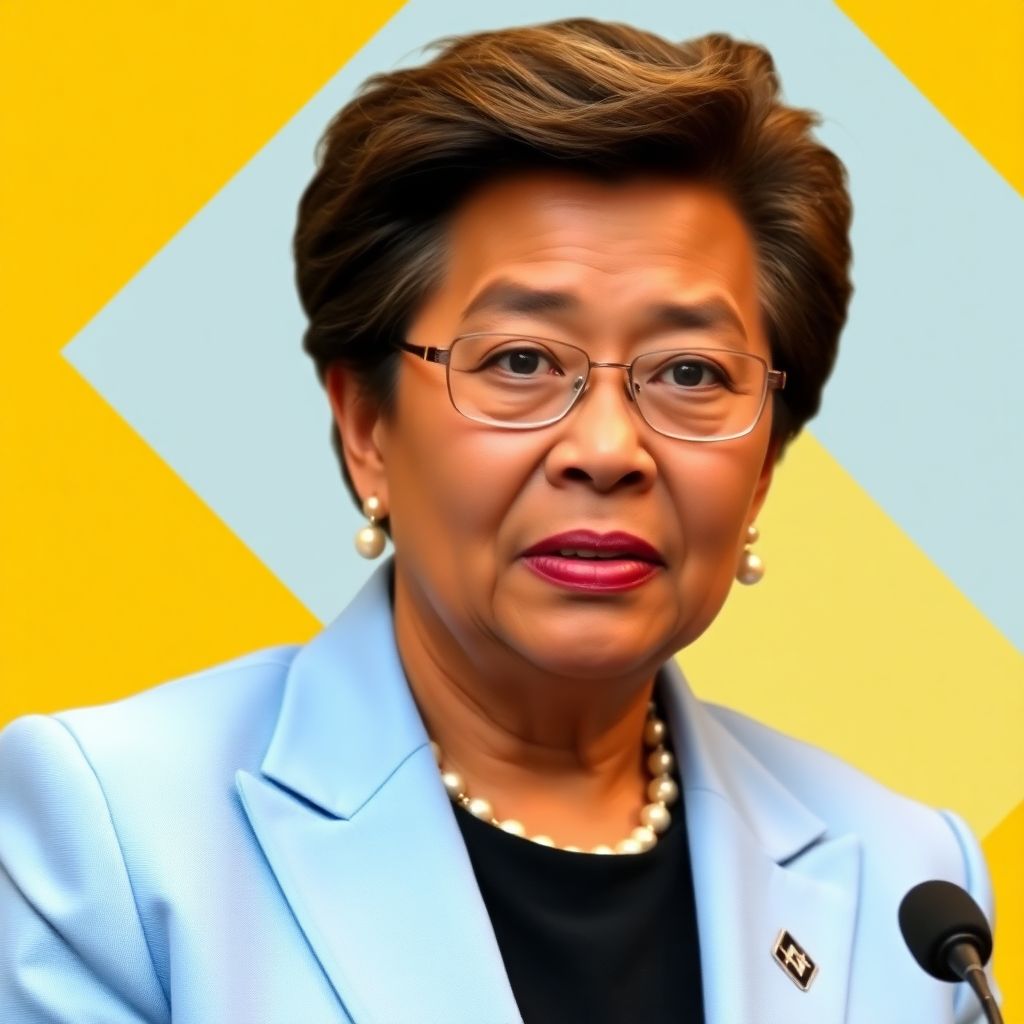Representative Maxine Waters has strongly condemned former President Donald Trump’s decision to pardon Changpeng Zhao, the founder and former CEO of cryptocurrency exchange Binance. The move has reignited political tensions and sparked a wave of criticism from lawmakers who view the pardon as an example of favoritism toward influential figures in the crypto industry, particularly those with personal or financial ties to Trump.
In a sharply worded statement, Waters, who serves as the Ranking Member of the House Financial Services Committee, described the pardon as “shameful” and “predictable,” calling it further evidence of Trump’s alleged pattern of prioritizing corruption and personal gain over public service. According to Waters, Zhao’s admitted involvement in enabling large-scale money laundering and facilitating transactions for illicit actors—including child exploitation networks, drug traffickers, and terrorist groups—should have disqualified him from any consideration for clemency.
“This pardon is not just a miscarriage of justice—it’s a clear signal that Trump continues to protect those who serve his financial interests, no matter how grave their crimes,” Waters stated. She further accused Trump of undermining the integrity of the financial system by aligning himself with individuals who disregard legal and ethical boundaries in pursuit of profit.
Zhao, often referred to by his initials CZ, had pleaded guilty to federal charges related to failure to implement adequate anti-money laundering controls during his leadership at Binance. The Department of Justice had previously imposed a multi-billion-dollar fine on the exchange, and Zhao agreed to step down as CEO as part of a broader settlement. His guilty plea acknowledged that Binance had operated as a conduit for billions of dollars in criminal transactions, including those linked to sanctioned countries and known criminal enterprises.
The timing of the pardon has also raised eyebrows. It comes amid a government shutdown, a crisis that many Democrats argue is being used as a distraction from ethical scandals and policy failures. Waters and other lawmakers allege that Zhao’s pardon is part of a broader pattern of transactional politics, where clemency is granted in exchange for financial support or political loyalty. Rumors have circulated that Zhao and associates may have funneled large sums into crypto wallets tied to Trump-linked ventures, though concrete evidence has yet to be presented publicly.
The controversy has reignited debate over the influence of cryptocurrency in U.S. politics. Critics argue that the largely unregulated nature of digital assets allows for opaque financial dealings and illicit campaign contributions. Waters has long advocated for stricter oversight of the crypto sector and has called for comprehensive legislation to close regulatory loopholes that, she claims, are exploited by bad actors.
In light of the pardon, several Democratic lawmakers are now pushing for congressional hearings to investigate potential conflicts of interest and whether Trump’s decision to pardon Zhao was influenced by undisclosed financial incentives. “We must examine whether Trump has turned the presidential pardon into a tool for personal enrichment,” Waters emphasized.
Legal experts have also weighed in, noting that while presidential pardons are constitutionally permitted and largely unchallengeable, they are subject to political scrutiny and can damage public trust in the justice system. “Pardoning someone who admitted to enabling global money laundering raises serious ethical and national security concerns,” one former federal prosecutor commented.
Advocates for financial reform see this episode as a wake-up call. They warn that without stronger transparency rules and accountability mechanisms, both in the crypto industry and in the pardon process, public officials may continue to abuse their power to benefit wealthy allies.
Furthermore, the pardon could have international ramifications. Binance, with its global reach, has faced scrutiny from regulators in Europe, Asia, and the Americas. Zhao’s legal troubles were seen as a pivotal moment in the global crackdown on crypto-related financial crimes. Now, with the U.S. appearing to absolve him, some fear it might weaken other countries’ resolve to enforce strict compliance standards.
In the crypto community, reactions to the pardon have been mixed. Some view it as a victory for innovation and entrepreneurship, arguing that Zhao was unfairly targeted by regulators who misunderstood the technology. Others believe the pardon undermines efforts to legitimize the crypto space by allowing a prominent figure to evade the consequences of serious legal violations.
Meanwhile, Trump’s allies have defended the decision, characterizing Zhao as a visionary whose work has revolutionized global finance. They argue that his contributions to decentralization and financial inclusion outweigh his legal missteps, and that the pardon reflects a broader pro-business stance.
Still, for Waters and her colleagues, the message is clear: the pardon of a billionaire crypto executive, especially one with a guilty plea on record, sends the wrong signal to both Wall Street and Main Street. “This is not about innovation,” Waters concluded. “It’s about accountability—and whether our democracy can withstand a president who puts personal gain above the rule of law.”
The incident also highlights the urgent need for a bipartisan framework to govern the rapidly evolving digital asset space. As cryptocurrencies become more mainstream, lawmakers will be forced to grapple with how to balance innovation with security, transparency, and justice.
In the coming weeks, expect intensified scrutiny of both Binance and Trump’s financial dealings, as well as renewed calls for tighter regulations on digital assets and campaign finance. The pardon may be a single act, but its ripple effects could reshape the future of crypto policy in the United States.

